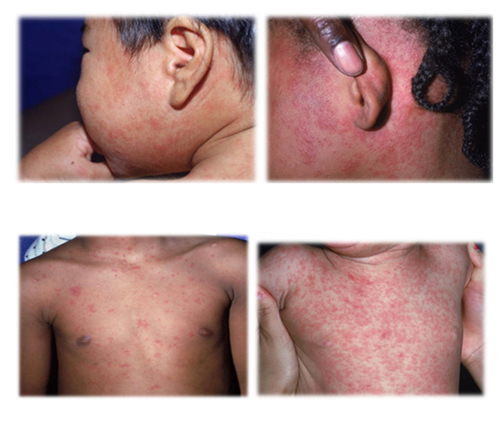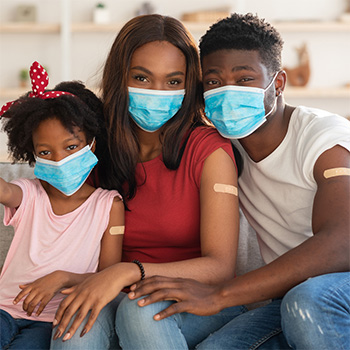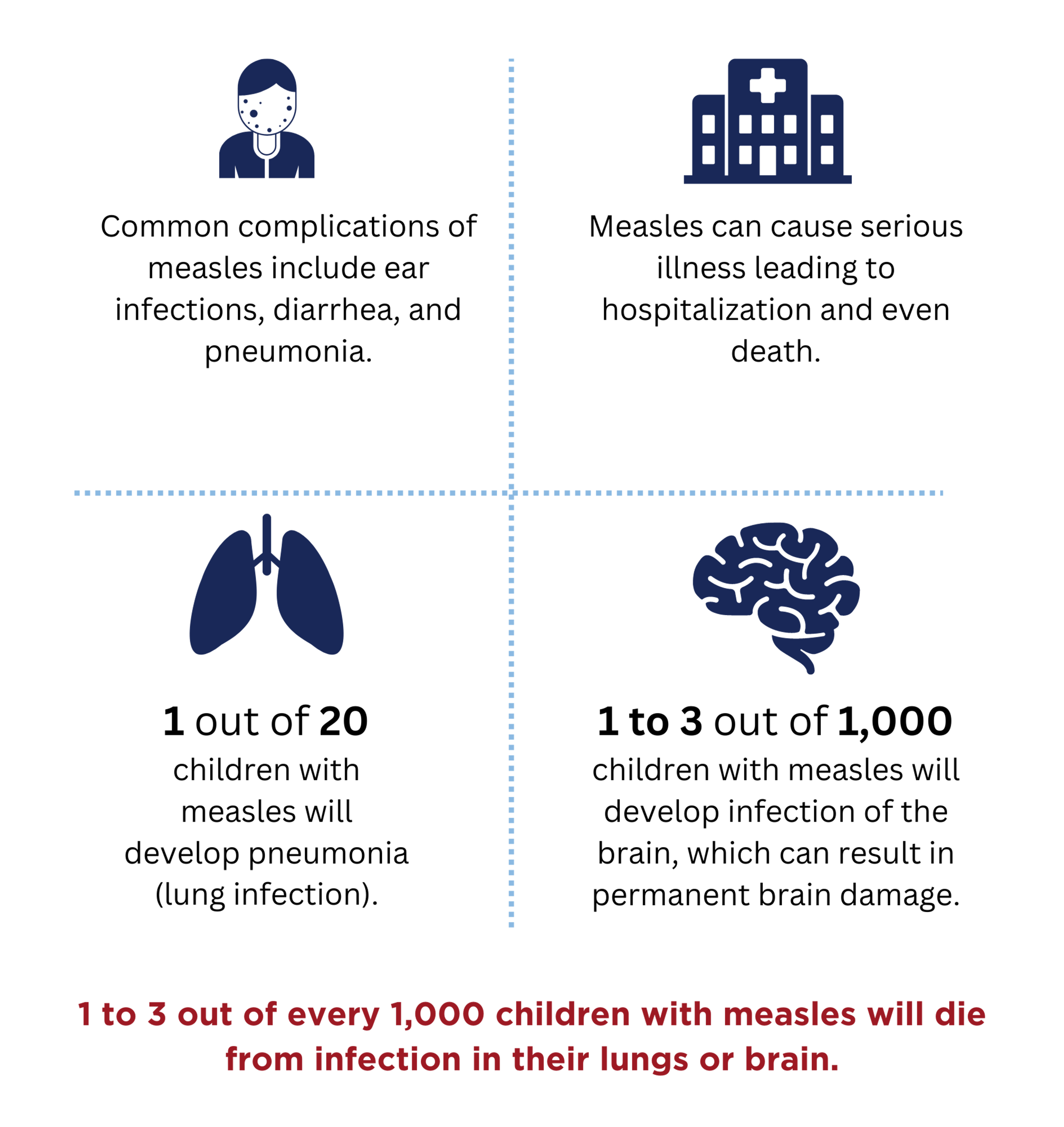If you or your child have been exposed to measles and are not fully vaccinated, call your healthcare provider immediately.
Measles vaccine or other medications may help reduce your risk of developing measles. Your provider may also recommend that you stay home to prevent the possibility of spreading measles to others.
FAQ for Parents and Families
What are symptoms of measles?
- Fever
- Cough
- Runny nose
- Red and watery eyes
- Rash: A rash usually appears 2-4 days after you begin to have symptoms. The rash usually starts at the hairline and spreads downwards over the face, neck, and then body. Before the rash appears, some people will have small spots inside the mouth on the cheek.

Photo Credit: National Library of Medicine
People who have not been vaccinated are at very high risk of developing measles after being exposed to someone with the illness.
Should I bring my child to a doctor?

If you suspect that you, your child, or a family member has measles, the Centers of Disease Control (CDC) recommends calling your provider before going to the clinic or the emergency department. Over the phone, your provider will assess your child’s symptoms and determine if your child needs to come to the clinic.
 If your child does need to be seen, the office or emergency department will provide instructions on how you should safely arrive to prevent the spread of infection. Prior to arrival, any patient over 2 years old and their family needs to put on a face mask. For those younger than 2 years, covering the face with a light blanket briefly while in the same room as other people may reduce risk of spreading measles. You may also be instructed to use a side entrance instead of the main entrance to avoid contact with other people.
If your child does need to be seen, the office or emergency department will provide instructions on how you should safely arrive to prevent the spread of infection. Prior to arrival, any patient over 2 years old and their family needs to put on a face mask. For those younger than 2 years, covering the face with a light blanket briefly while in the same room as other people may reduce risk of spreading measles. You may also be instructed to use a side entrance instead of the main entrance to avoid contact with other people.
How contagious is measles?
Measles is highly contagious. If you are unvaccinated and never had measles before, you have a greater than 90% chance of developing measles after contact with someone with the illness. If you have been vaccinated with both recommended doses, you are at very low risk of developing measles.
How does measles spread?
How serious is measles?

Talk to your healthcare provider if you have questions about measles illness.
How long should your child stay home from school?
Children should typically stay home from school or daycare for at least 4 full days after the rash started to make sure they are no longer contagious. If you are not immune to measles and are exposed, you will need to stay away from school or daycare for 3 weeks from the day you were most recently exposed. Talk to your child’s healthcare provider to find out when it’s okay to come back to school or daycare.
Prevention: The Importance of the Measles Vaccine
The most important step you can take to protect yourself from measles is to get vaccinated. According to the CDC, about 95 out of 100 people will be protected after receiving one MMR vaccine dose AND 97-99 people out of 100 will be protected after receiving the second dose.
The first measles vaccination is usually given between 12 and 15 months of age. However, infants 6-12 months old can get a measles vaccine during an outbreak or before international travel to a location with an active measles outbreak. An additional dose would be required at age 12 months if you get your first dose early. The second dose is typically given at 4-6 years old but may be given early depending on the risk of measles in your area. If you or your child are not up to date on your measles vaccination, talk to your healthcare provider today.
Protection for Parents and Grandparents
According to the CDC, you are considered protected against measles if you:
- Were born before 1957
- Had a lab test confirming immunity or a prior infection.
If you or your child have been exposed to measles and are not fully vaccinated, call your healthcare provider immediately. Measles vaccine or other medications may help reduce your risk of developing measles. Your provider may also recommend that you stay home to prevent the possibility of spreading measles to others.
To Learn More About Measles and Immunizations, check out the links below: